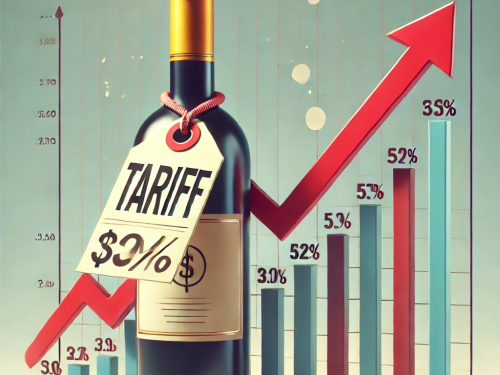Wine Tariffs
Wine tariffs are taxes imposed on imported wines by a country's government. These tariffs can be a fixed percentage of the wine's value or a specific amount per unit (e.g., per liter or case).
Reasons for imposing wine tariffs:
- Protecting domestic wine industries: Tariffs make imported wines more expensive, increasing the competitiveness of locally produced wines.
- Generating government revenue: Tariffs provide a source of income for the government.
- Retaliation in trade disputes: Tariffs can be used as a tool to pressure other countries in trade negotiations or as a response to perceived unfair trade practices.
Impact of wine tariffs:
- Increased prices for consumers: Tariffs raise the cost of imported wines, making them less affordable for consumers.
- Reduced consumer choice: Higher prices can lead to a decrease in the variety of imported wines available in the market.
- Impact on domestic wine producers: While tariffs might benefit domestic producers by reducing competition, they can also lead to complacency and reduced innovation.
- Impact on global trade: Tariffs can disrupt international trade flows and strain relationships between countries.
Recent examples of wine tariffs:
- US-EU trade dispute: In 2019, the US imposed tariffs on European wines in retaliation for EU subsidies to Airbus. These tariffs were partially lifted in 2021 but remain in place for certain types of wine.
- China-Australia trade dispute: In 2020, China imposed significant tariffs on Australian wines, effectively halting imports. These tariffs were lifted in 2024, but the Australian wine industry suffered significant losses.
Key considerations:
- Wine tariffs can have complex and far-reaching economic and political consequences.
- The impact of tariffs can vary depending on the specific circumstances of the countries involved and the types of wines affected.
- The use of tariffs in trade disputes can lead to escalating tensions and retaliatory measures.
Overall, wine tariffs are a tool used by governments to influence international trade and protect domestic industries. However, they can also have significant consequences for consumers, producers, and global trade relations.
Please let me know if you have any other questions.

